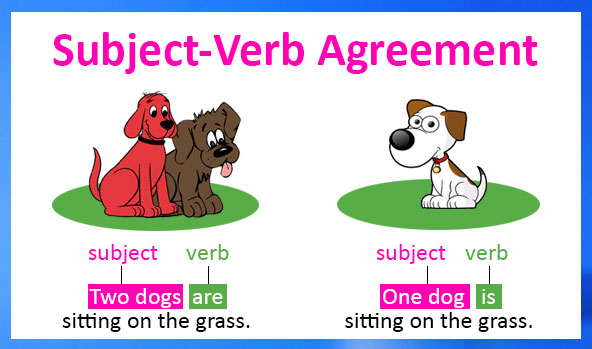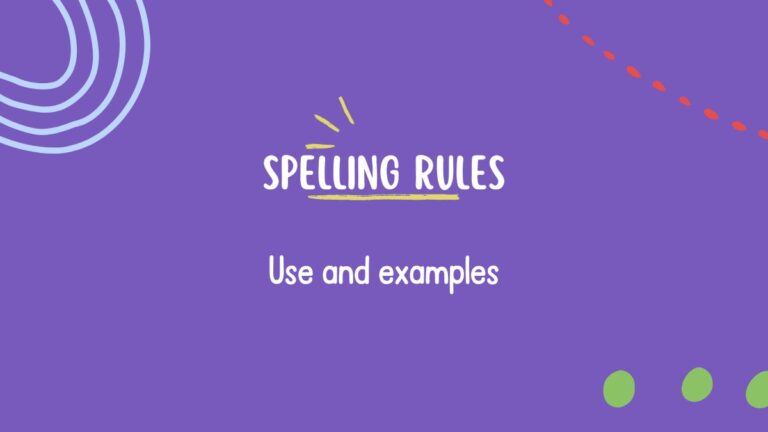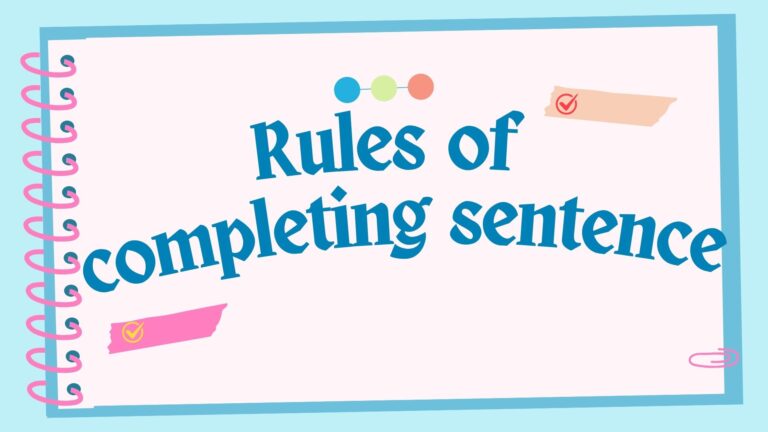Rules for Making Words Plural
English has many spelling rules. In this post, you’ll learn the key rules for making words plural with examples to help you remember. Learn the basic and advanced rules for forming words plural nouns in English, including regular and irregular forms.
What are Plural Nouns?
Plural nouns are more than one person, place or thing. They are countable.
Example:
People, buildings, fishes etc
Understanding pluralization in English
Pluralization directly impacts the clarity and accuracy of language use. Mastering the rules for forming plurals not only enhances one’s writing and speaking skills but also aids in comprehending English grammar. Different categories of nouns, such as regular and irregular forms, require specific approaches to pluralization.
Basic Rules for making Words Plural
Here are discussed the basic rules for making words plural.
Add -s:
If the noun is regular, add -s at the end.
Examples:
- book – books
- car – cars
- girl – girls
Add -es:
Add -es to nouns ending in -s, -sh, -ch, -o, -x, or -z.
Examples:
- bus – buses
- box – boxes
- brush – brushes
- tomato – tomatoes
- hero – heroes
Add -ies:
If nouns end in a consonant y then change “y” to “i” and add -es
Examples:
- baby – babies
- party – parties
- city – cities
Note: If the word ends in a vowel y, just add -s:
- boy – boys
- toy – toys
- key – keys
Add -ves:
Nouns that end in -f or -fe will change to -ves
Examples:
- knife – knives
- leaf – leaves
- wife – wives
Note: Some just add -s, like:
- roof – roofs
- belief – beliefs
- proof – proofs
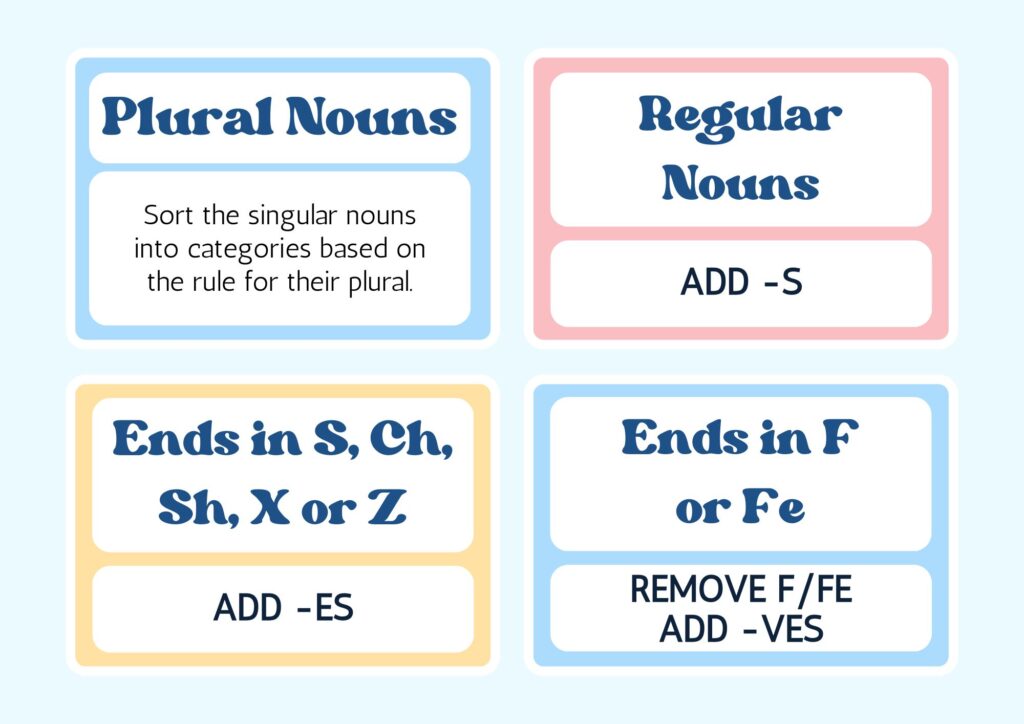
Rules for making words Plural; Irregular Plurals
Some nouns don’t follow regular rules.
Examples:
- man – men
- woman – women
- child – children
- foot – feet
- tooth – teeth
- mouse – mice
Some nouns don’t change at all.
Examples:
- sheep – sheep
- deer – deer
- fish – fish
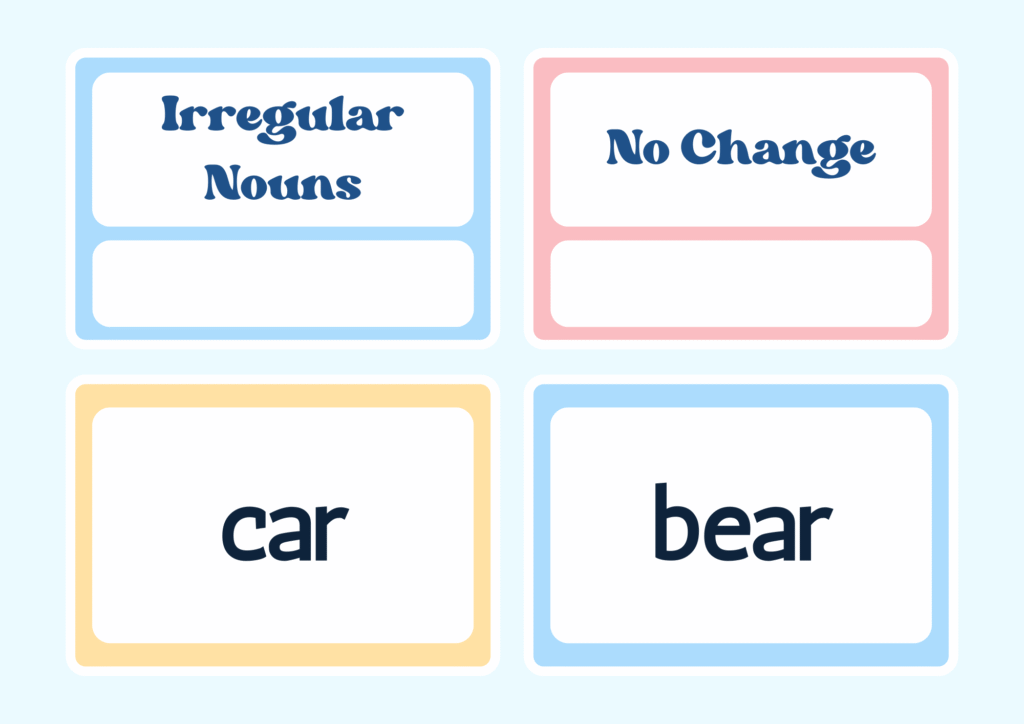
| Add -s | Add -es | Add -ies | Add -ves | Irregular Plural |
| cat – cats | dish – dishes | baby – babies | leaf – leaves | deer – deer |
| dog – dogs | brush – brushes | city – cities | wolf – wolves | criterion – criteria |
| table – tables | church – churches | lady – ladies | knife – knives | nucleus – nuclei |
| chair – chairs | bus – buses | story – stories | life – lives | fungus – fungi |
| mountain – mountains | bush – bushes | country – countries | wife – wives | cactus – cacti |
| telephone – telephones | mess – messes | party – parties | loaf – loaves | louse – lice |
| cow – cows | fox – foxes | fly – flies | calf – calves | ox – oxen |
| bird – birds | tomato – tomatoes | puppy – puppies | half – halves | person – people |
| fan – fans | volcano – volcanoes | family – families | shelf – shelves | mouse – mice |
| cup – cups | virus – viruses | diary – diaries | thief – thieves | tooth – teeth |
| candle – candles | dress – dresses | body – bodies | sheaf – sheaves | child – children |
Is “fishes” correct?
Yes, but it’s usually used when referring to different species of fish.
Why do some words have no plural form?
Some uncountable nouns like “information” or “advice” don’t take plurals.


